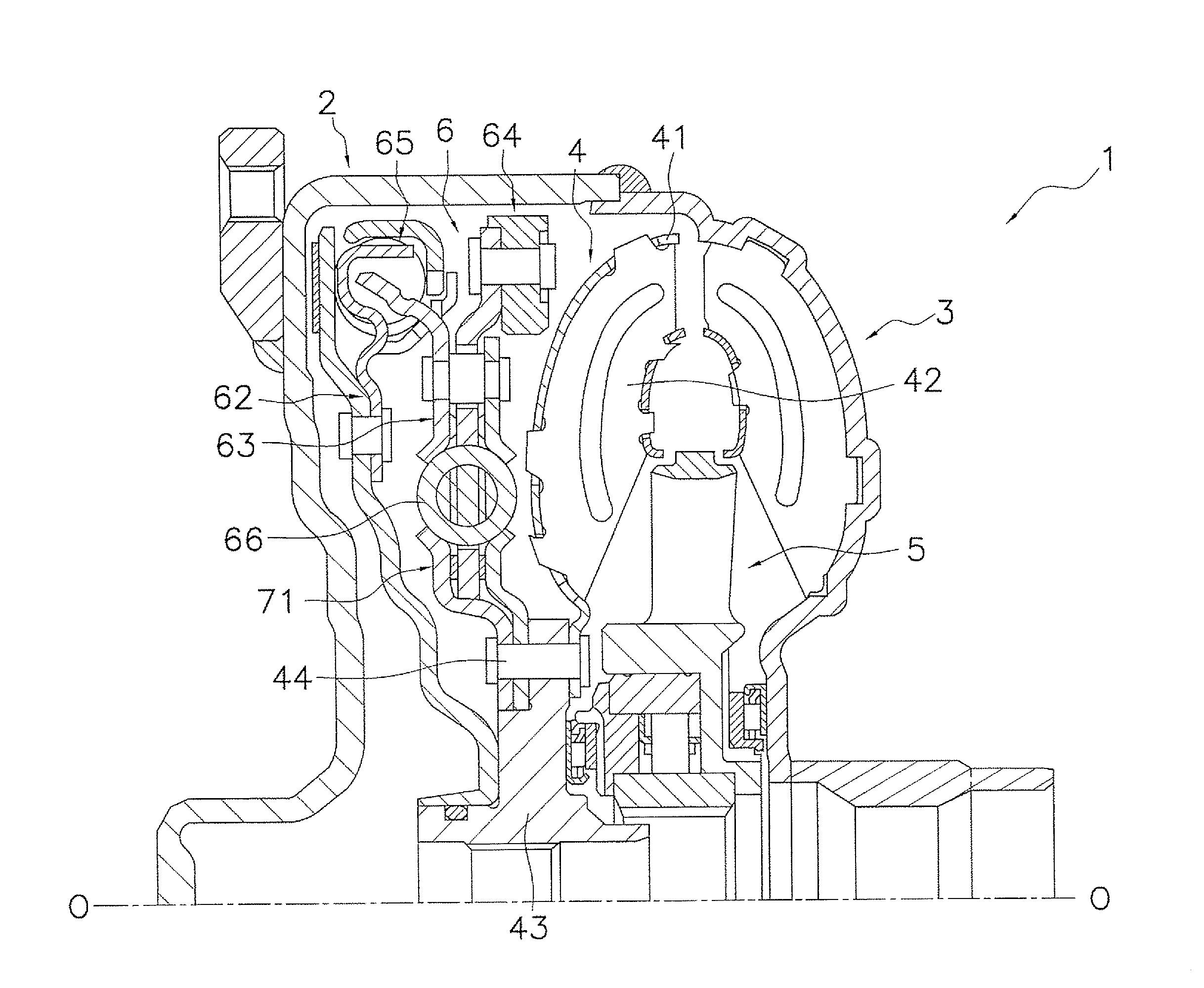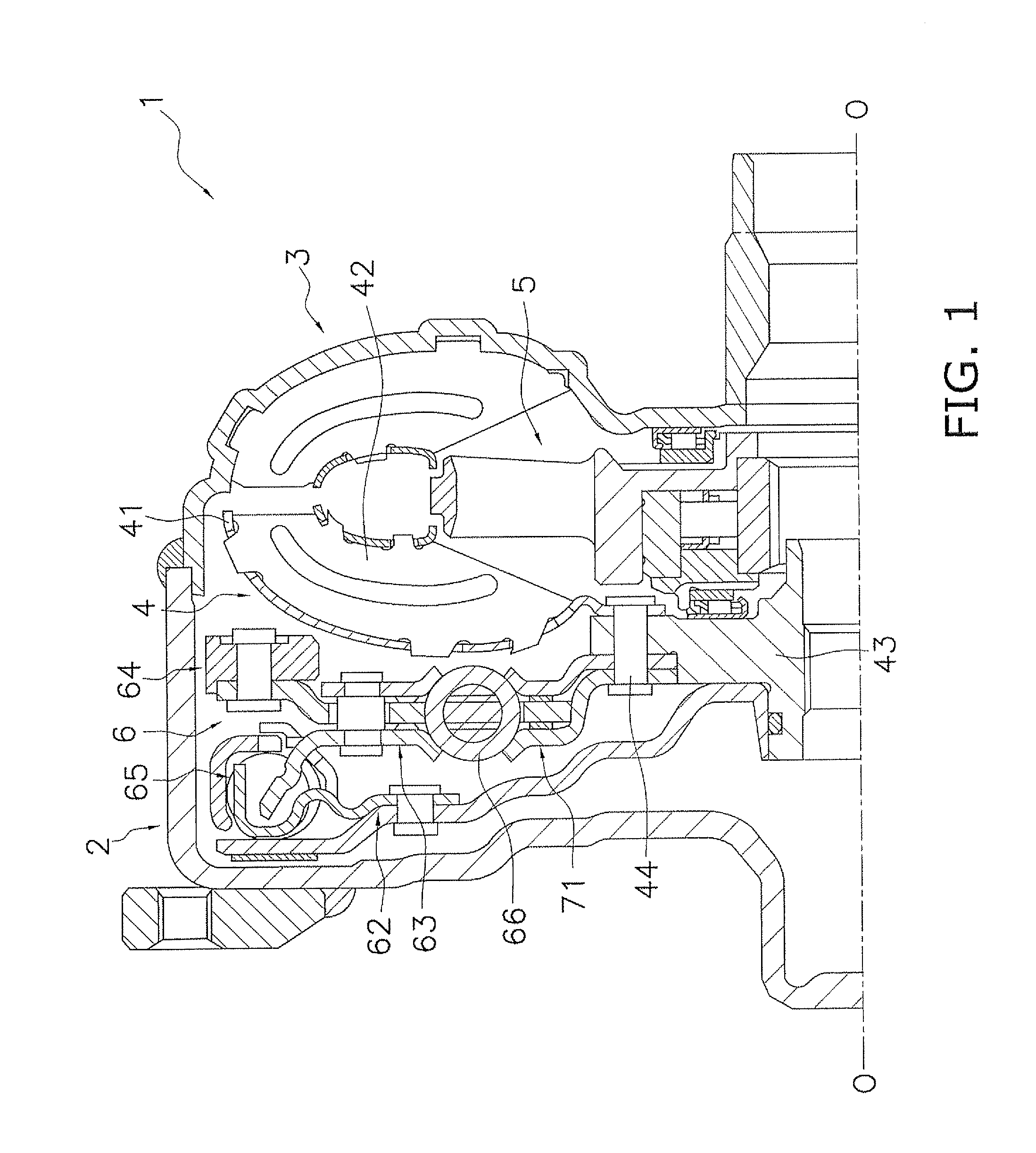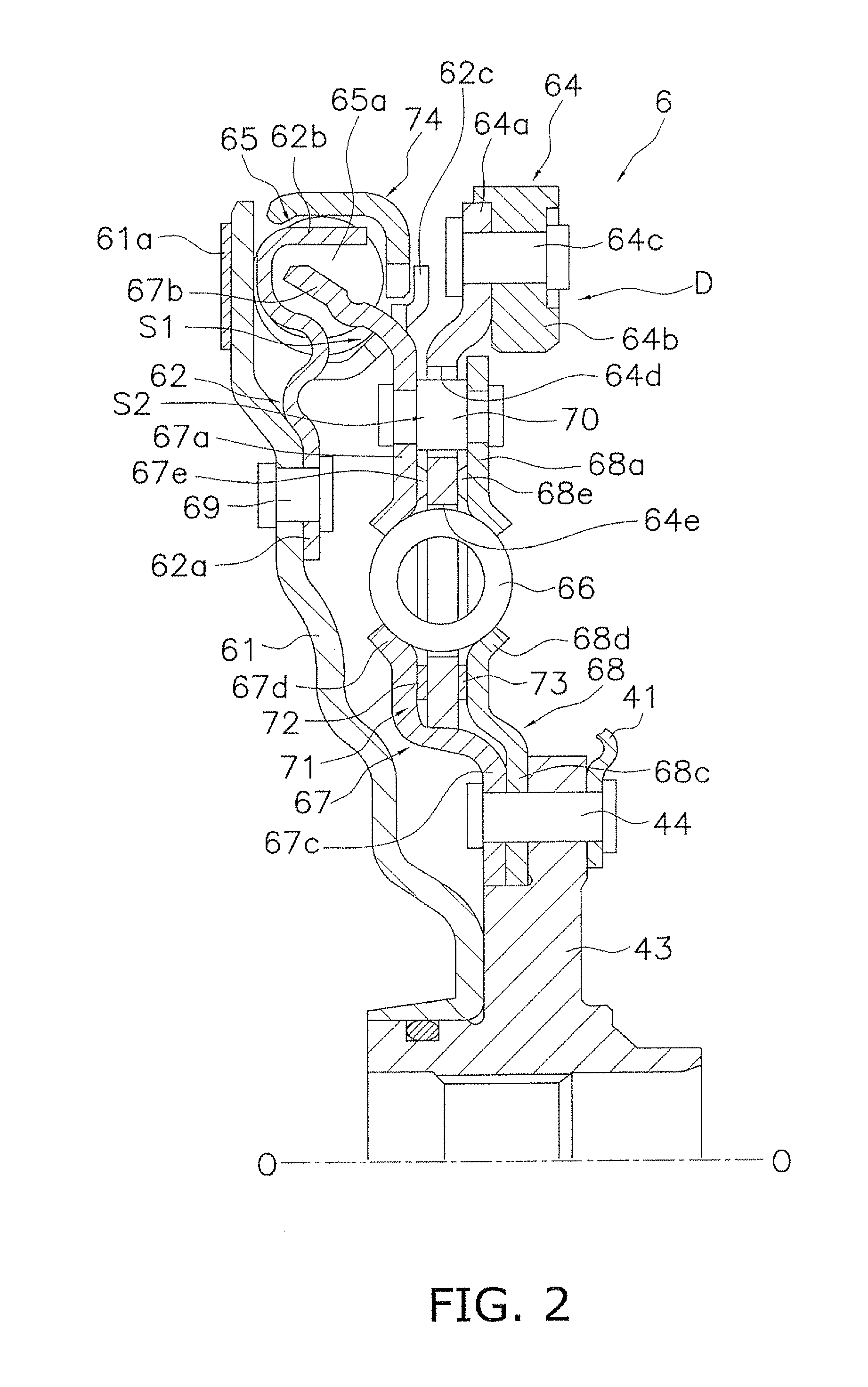Lockup device and fluid type power transmitting device
- Summary
- Abstract
- Description
- Claims
- Application Information
AI Technical Summary
Benefits of technology
Problems solved by technology
Method used
Image
Examples
Embodiment Construction
[0024]Embodiments of the present invention will now be explained with reference to the drawings.
Overall Configuration of Torque Converter
[0025]A torque converter 1 exemplifying a fluid type power transmitting device will now be explained using FIGS. 1 and 2. FIG. 1 is a vertical cross sectional schematic view of the torque converter 1. FIG. 2 is a vertical cross sectional schematic view of a lockup device 6. An engine (not shown) is arranged on a left-hand side of FIG. 1 and a transmission (not shown) is arranged on a right-hand side of FIG. 1. The line O-O shown in FIG. 1 indicates a rotational axis of the torque converter 1.
[0026]The torque converter 1 is a device for transmitting power from a crankshaft (not shown) of the engine to an input shaft of the transmission and chiefly includes a front cover 2 (input rotary body) to which power is inputted, an impeller 3, a turbine 4 (output rotary body), a stator 5, and a lockup device 6.
[0027]The front cover 2 is fixed to the impeller ...
PUM
 Login to View More
Login to View More Abstract
Description
Claims
Application Information
 Login to View More
Login to View More - R&D
- Intellectual Property
- Life Sciences
- Materials
- Tech Scout
- Unparalleled Data Quality
- Higher Quality Content
- 60% Fewer Hallucinations
Browse by: Latest US Patents, China's latest patents, Technical Efficacy Thesaurus, Application Domain, Technology Topic, Popular Technical Reports.
© 2025 PatSnap. All rights reserved.Legal|Privacy policy|Modern Slavery Act Transparency Statement|Sitemap|About US| Contact US: help@patsnap.com



